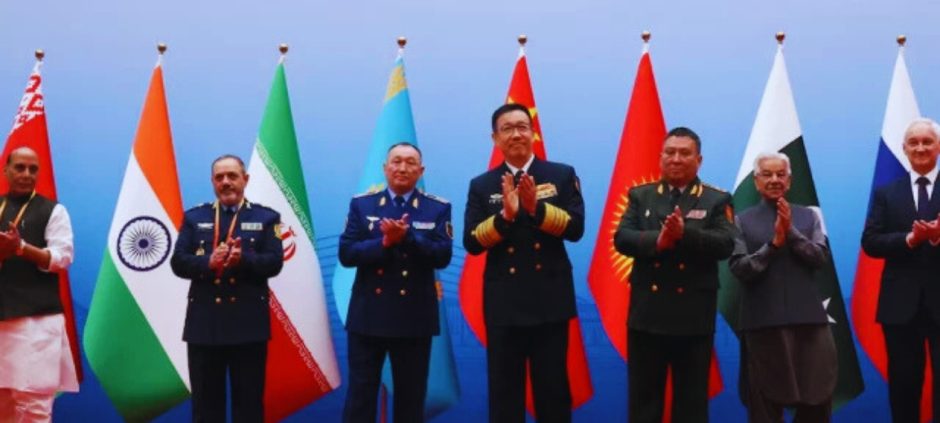Qingdao, China – The Shanghai Cooperation Organisation (SCO) defence ministers’ meeting concluded without a joint statement after India refused to endorse the document, claiming it favoured Pakistan by omitting references to a recent attack on Indian tourists in occupied Kashmir.
The SCO, a 10-member Eurasian security bloc comprising China, Russia, India, Pakistan, Iran, and Central Asian states, held the meeting ahead of its annual leaders’ summit later this year.
Read More : Pakistani And Indian Defence Chiefs Attend SCO Summit Amid Hopes for Quiet Diplomacy
Pakistan Reaffirms Commitment to Regional Security
Pakistan’s delegation, led by Defence Minister Khawaja Muhammad Asif, emphasized the country’s dedication to regional stability, counterterrorism cooperation, and adherence to the UN and SCO charters.
In his address, Asif condemned Israel’s military actions against Iran and the ongoing violence in Gaza while advocating for peaceful resolutions to global disputes, including Kashmir and Palestine. He also denounced a recent terrorist attack in Indian Illegally Occupied Jammu and Kashmir (IIOJK) and referenced the Jaffar Express bombing in Balochistan as an example of cross-border terrorism threatening regional peace.
India Blocks Consensus Over Draft Dispute
The meeting faced a deadlock when India rejected the final statement, objecting to the exclusion of the April 22 attack on Hindu pilgrims in IIOJK, which killed 26 people. India had blamed Pakistan for the incident—a claim Islamabad denied—leading to heightened cross-border tensions.
Indian Defence Minister Rajnath Singh reportedly argued that the draft statement “diluted India’s stance on terrorism” by omitting the April attack while including references to unrest in Balochistan, where Pakistan alleges Indian involvement in separatist activities.
“Certain members could not reach consensus on key issues, preventing the document’s finalization,” said Indian Foreign Ministry spokesperson Randhir Jaiswal, without naming Pakistan.
The Qingdao meeting marked the first high-level interaction between Indian and Pakistani officials since their military standoff in May. The failure to adopt a joint statement underscores persistent divisions within the SCO on regional security and terrorism-related issues.










